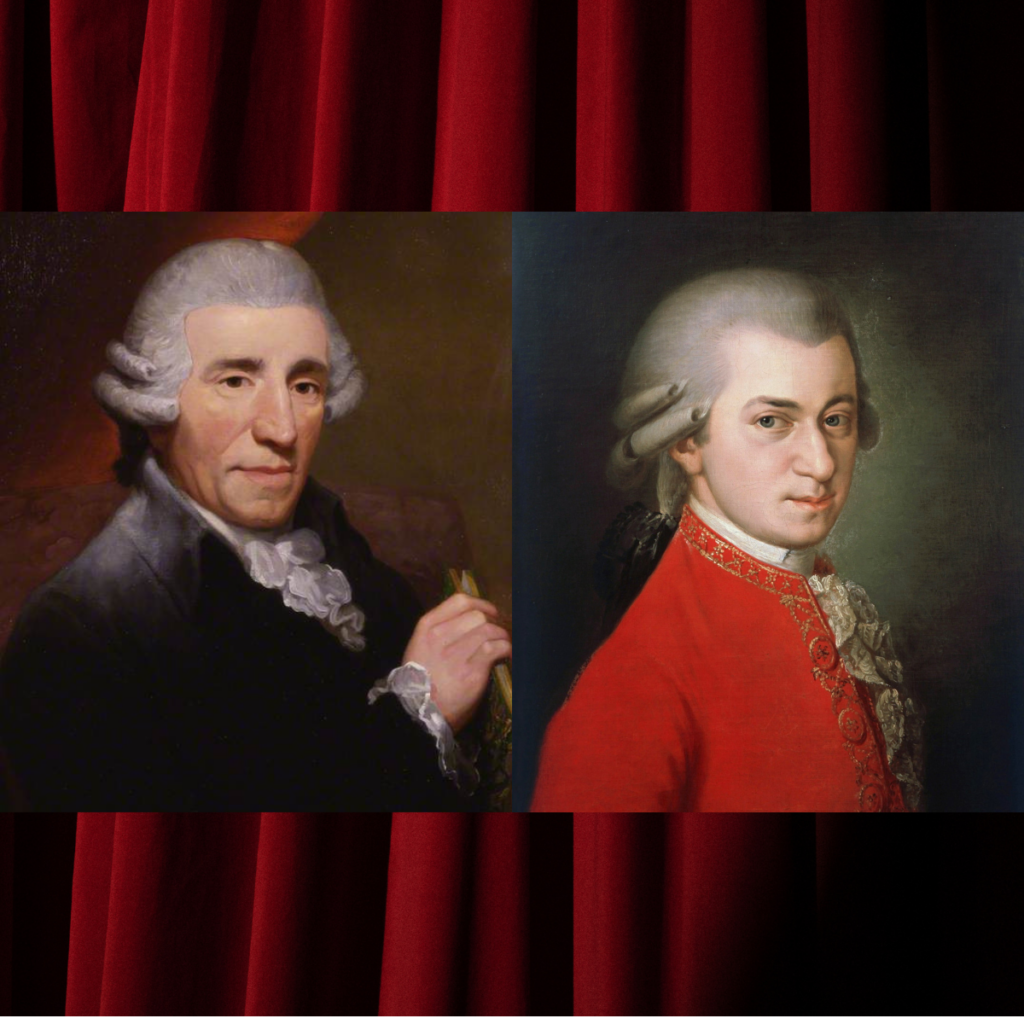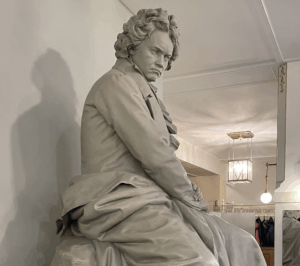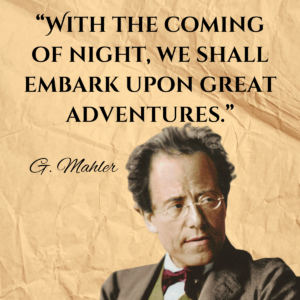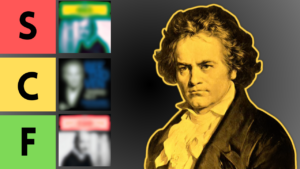Back in the time of Bach and Handel, music was an entertainment of the wealthy elite. Many aristocrats owned private musicians and orchestras, which served for dinner parties and other honorable events.
Most Baroque composers served at the courts of kings or churches, primarily composing sacred or ceremonial music, following the instructions of their patrons and aligning with their views on music.
The main source of income for an average Baroque composer came from being hired by a nobleman or church, for whom they composed music to entertain them and their guests.
Composers were often restricted to writing the music their benefactor wanted to hear. It’s no surprise that this led to conflicts between the composer and the patron, preventing the composer from fully unleashing his talent.
Even in this harsh reality, there were dozens of great and prominent composers who changed music. Bach, Vivaldi, Handel, Lully, you name a few!
With the urbanization of Europe and the development of the middle and upper-middle classes in the 18th century, music changed with it as well.
Now, it became accessible to more people and was no longer a privilege just for the aristocracy. People demanded more light and elegant music, different from the old-fashioned Baroque.
Composers, on the other hand, became more autonomous, which opened new possibilities for them to express their creativity. Numerous musical forms were developed during this period of big change.
The key musical styles became symphonies, piano sonatas, and various concertos, which opened a whole new world for a new generation of composers.
Undoubtedly, the most famous so-called new composers became Haydn and, later, his famous pupil, Mozart. Both were very famous and ruled the world of classical music.
Now, as well as back in the 18th century, Mozart was considered the greatest composer alive, having surpassed his teacher Haydn and pushed the boundaries of music.
However, the biggest mistake would be to underestimate Haydn’s talent in comparison to Mozart. It’s important to understand that without Haydn’s influence and guidance, Mozart might not have become as prominent as he was.
So today we are going to take a deeper look at the life and art of both Haydn and Mozart. We will discuss their music in details and finally define who was the greatest Classical composer.

Subscribe to Classical Echoes Newsletter!
Haydn’s Life and Music
Joseph Haydn (1732–1809) was born in Rohrau, Austria, into a family of a wheelwright and a cook. Even though he came from a non-musical family, young Haydn began to show musical talent at an early age and was trained as a choirboy.
Later, when his voice started to break, he was expelled from the choir, leaving him on his own. However, the knowledge and passion for music he gained there gave him the strength to not give up and pursue his life as a musician.
At the age of 17, he left his home village and worked as a freelance composer. He studied with other Italian and Austrian composers, which gave him more knowledge but kept him financially broke.
After gaining some recognition and establishing himself as a prominent composer, he began to be called by wealthy families to work for them as a court musician and conductor. In the mid-18th century, composers mostly served at private courts.
Much of his time was spent in the service of the Esterházy family, Hungarian-Austrian aristocrats, where he had his own orchestra and could expand his talent and experiment with his music.He was influenced by the styles of Scarlatti and C. P. E. Bach – the pioneers of classical music.
He became obsessed with their light and elegant music, which was a breath of fresh air after the strict and bold Baroque music, and Haydn absolutely nailed it. He experimented with musical forms and included many innovative elements in his music.
Interestingly, though, at the Esterházy house, he was still considered a servant, not a fully autonomous composer. One time, when Esterházy had a guest who was aware of Haydn, the guest was shocked to find that Haydn lived in a room with other servants and had almost no privileges.
Of course, this didn’t play well for Haydn, as he was known mostly as a court musician and didn’t have much fame outside the aristocratic circles of his admirers and patrons.
Nevertheless, it didn’t make him despair, and he was fully dedicated to his musical career. Haydn is primarily known as the “Father of the Symphony,” a new classical form in contrast to Baroque traditions.
He composed 104 symphonies, 68 string quartets, and over 50 piano sonatas – not a day passed without composing a new piece.
The music of Haydn is often described as full of joy and brilliance, which reflects Haydn’s character – always positive and full of life. He was very creative with his music and included so called ‘musical jokes’ in it.
Take, for example, his “Surprise” Symphony in G major, where he includes spontaneous sforzandos to “surprise” those who fall asleep during the concert. And overall, his catchy and cheerful music makes him a brilliant melodist.
Despite his musical genius and innovations, he remained publicly unknown until the end of his life in 1809. He was famous as a court musician and was restricted for most of his life to satisfy his patrons and superiors.
However, he played a crucial role as a teacher. He was considered the first Viennese Classicist and taught many next-generation composers, including Mozart and Beethoven. His music had a huge influence on them.
Haydn was the first major composer to implement the core ideas of classical music and was a teacher for many composers. Without his impact, neither Mozart nor Beethoven would have become who they were.
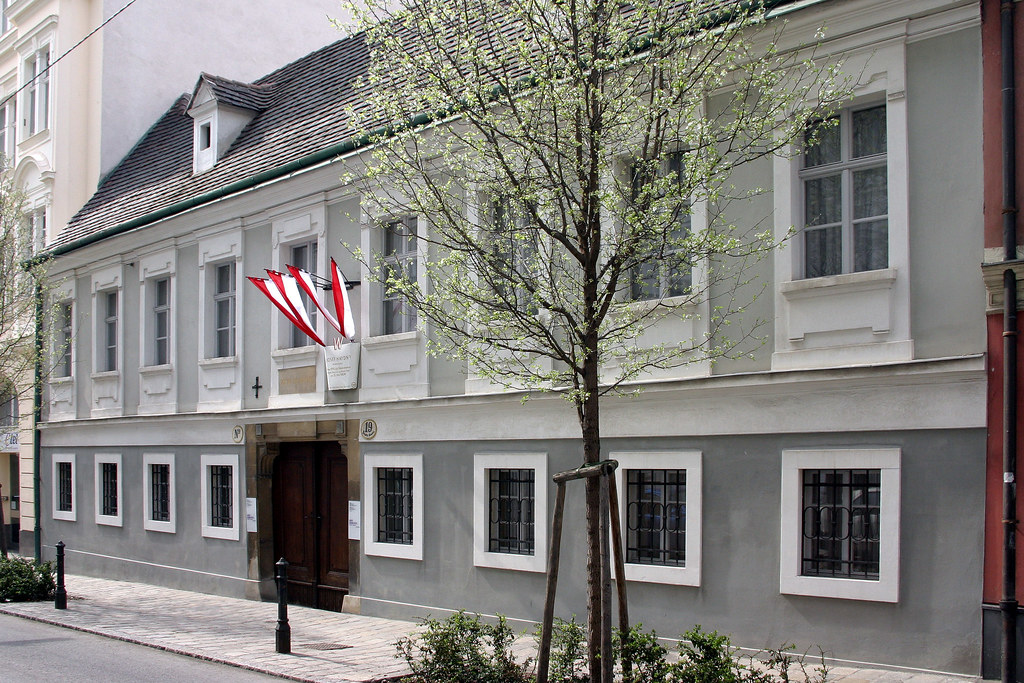
The House where Haydn was born (wikimedia commons)
Mozart – The Rise of a Star
In 1756, in Austrian Salzburg, a boy was born who would later stun Europe with his talent. Mozart began to show his exceptional musical skill from the earliest age. By the age of 3, he could already read from sheet music and play the keyboard.
Mozart completed his first composition at the age of 5, and from then on, almost no day passed without him composing something new, from simple minuets to symphonies and operas.
The most important mentor for Mozart was his father, who was also a musician and composer, unlike Haydn’s parents. He took young Mozart on tours, demonstrating his skills in front of the bohemians of Europe.
The life of young Mozart was similar to that of today’s pop stars – always on the move, touring around Europe. His talent earned him many prestigious positions in cities like Paris, Mannheim, and Salzburg, but little financial stability.
This meant Mozart had to constantly work, and he was an exceptionally prolific composer. However, the pieces that truly brought him fame were his operas. He was a genius at combining his elegant music with powerful visuals and storytelling.
The key difference between Mozart and Haydn was that Mozart always was looking for autonomy and full artistic freedom. While Haydn served most of his life as a court musician, Mozart was mostly independent.
He was at the center of attention among Vienna’s elite and spent countless hours in cafés and salons, where he often presented his new piano and violin pieces, showcasing his technical skills.
His connections helped him organize large orchestras and stage grand performances of his operas in Vienna’s concert halls and theaters. In exchange, he often dedicated his pieces to some of his sponsors, which helped him stay independent and financially supported.
This desire for freedom allowed Mozart to experiment a lot with his music, without any constraints. He perfectly combined elegance and structure with self-expression in his compositions.
Mozart was the crown jewel of classical music – it is perfectly balanced, and he achieved perfection in it, developing complex themes and brilliant and catchy melodies, enveloped with harmonic excellence.
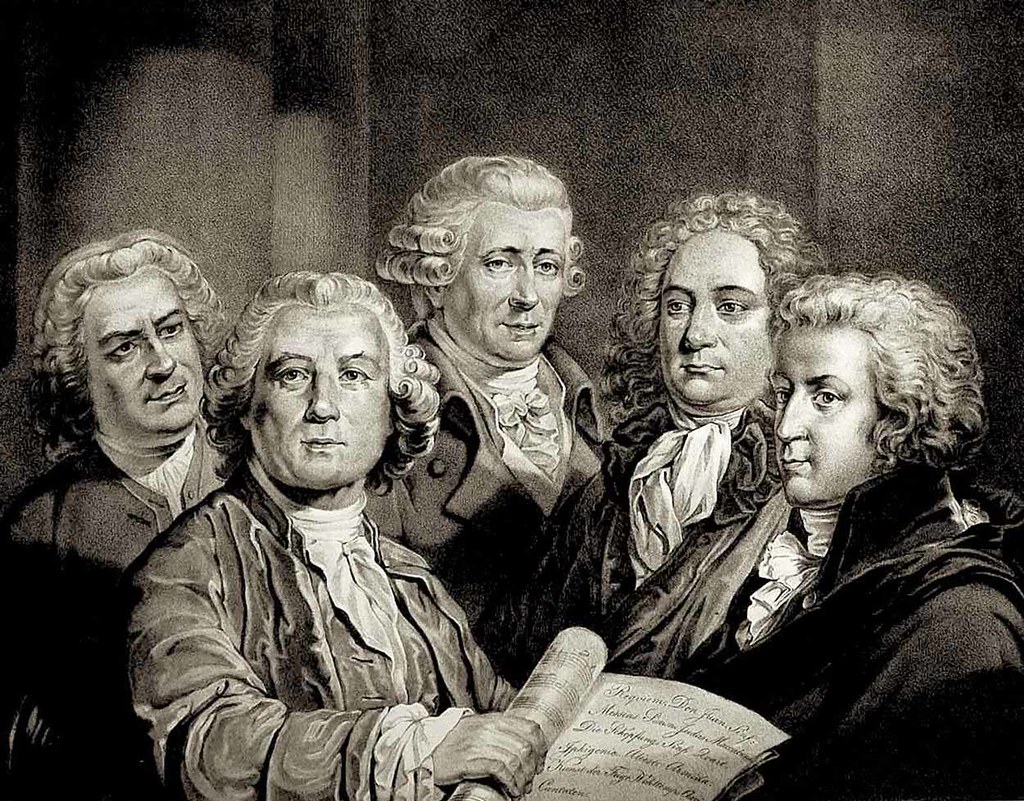
C. Ph. E. Bach, C. Gluck, J. Haydn, W. A Mozart and G. Handel (Flickr)
Who is Greater Composer?
As we see now, Mozart’s music is strongly interconnected with Haydn’s. He follows classical traditions of his teacher and masterfully implements his principles in his music. This builds a stereotype that Mozart wasn’t as revolutionary a composer as he is considered now.
Often, when listening to Mozart and Haydn, it’s hard to tell the difference between the two – unlike, let’s say, Mozart and Beethoven, where Beethoven is clearly more distinct in sound.
However, there are clear reasons why Mozart is more regarded than Haydn and remains much more famous today
1. Mozart’s thematic development.
Melody plays a key role in all of Mozart’s music. One of the reasons he was so popular was that he could write incredibly catchy and pleasant melodies and build up his masterpieces on simple, sometimes childlike themes.
He masterfully ornamented melodies within his music as a precise perfectionist. Focusing on clear lines and the development of themes, his pieces achieve pure musical perfection, where each note seems to be in its place, and if you change one – the whole magic will be gone.
Haydn, on the other hand, was more focused on structure rather than melody. His main themes are generally shorter and not as remarkable as Mozart’s, which makes Haydn more of an “old-school” Classical composer.
2. Orchestration.
Mozart was a wonderful opera composer, so it would be natural for him to make his music sound as colorful and rich as his operas. That’s why he focused on sophisticated orchestration and used his full imagination to create sublimely beautiful passages in his symphonies and piano concertos.
While Haydn focused on strict patterns and instrumental hierarchy, Mozart tried to give voice to each instrument and build a complex harmony. This is why his music is often so fun and lively to listen to – full of joy, as he builds a dialogue between instruments.
Another reason is that Mozart was a more “Italian” composer than Haydn. He was influenced by Italian music from childhood, which is famous for its more dramatic and passionate nature.
Haydn, in contrary, was a true German composer, focusing more on compositional aspects and musical elegance. This played a crucial role in shaping their views on music, yet they always managed to find common ground.
3. Beauty in Simplicity.
The magic of Mozart is his ability to take a simple, almost primitive theme and still build an entire universe from it. As Chopin said, “The final achievement of music is simplicity.”
Mozart wrote many of his works in C major – the simplest and purest key – but he doesn’t need Mahlerian scale or Lisztian passion to attract listeners. This is one of his greatest qualities, as everyone can interpret his music in their own way.
Haydn was great with counterpoint and used it widely in his string quartets and piano sonatas. It is very likely that he taught Mozart these compositional techniques, which are very difficult to master unless one is a genius like Mozart.
Take, for example, the fourth movement of the Jupiter Symphony, where he begins with an astonishing five-part invertible counterpoint. He manages to combine five separate themes and achieve harmonic excellence, which was truly unprecedented – even after Bach and Haydn’s fugues.
Yet, this entire display of harmonic brilliance still sounds so natural and effortless – a true testament to Mozart’s genius. He didn’t need to constantly show off to prove he was a brilliant composer; his music spoke for itself.
Fugal Entries in Jupiter Symphony (yt. Richard Atkinson)

